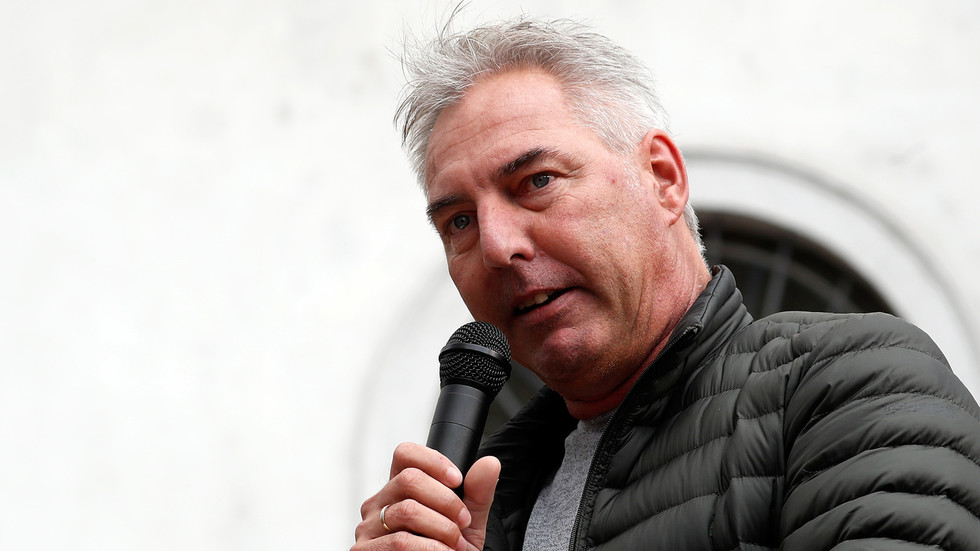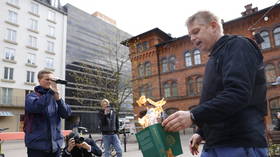
Edwin Wagensveld was not arrested after agreeing not to burn the Muslim holy book

FILE PHOTO. Edwin Wagensveld right-wing activist Netherland’s Pegida attends the “March of the Patriots” on Austrian National Day on October 26, 2018 in Vienna, Austria. © Laszlo Balogh/Getty Images
Edwin Wagensveld, head of the anti-Islam group Pegida, tore up a copy of the Koran in front of the House of Representatives of the Netherlands on Sunday in The Hague, echoing a recent stunt outside the Turkish embassy in Sweden that outraged the majority-Muslim nation.
Wagensveld, who has been arrested for similar demonstrations in the past, avoided arrest this time by cooperating with a police instruction not to actually burn the Muslim holy book as he had planned to do. He also stomped on a second Koran and the torn pages from the first.
Authorities confirmed to local news outlet Regio15 that the far-right figure was left alone because he had kept to preexisting agreements with the city.

Read more
Wagensveld’s previous efforts to protest the “Islamicization” of Europe in The Hague were scuttled before they started, with police moving in to arrest him to prevent a planned Koran-burning. He was also arrested in Rotterdam for “insulting the faith” after he was heard insulting the Muslim Prophet Muhammad and the religion itself using a megaphone, though he was not prosecuted after it was determined he had not committed a crime.
Earlier this week, Danish far-right politician Rasmus Paludan burned a Koran in front of the Turkish embassy in Sweden, delivering an anti-Islam monologue with police permission and protection. While Swedish authorities cited the country’s constitutional backing for freedom of expression to justify allowing the Stram Kurs (Hard Line) party leader’s provocative actions, the stunt outraged Türkiye.
Turkish media reported that its Foreign Ministry had summoned the Swedish ambassador to warn him against allowing what it called “clearly a hate crime” to go ahead, saying that he was unwilling to accept “democratic rights” as justification for “insults to sacred values.” A Swedish flag was burned outside the country’s embassy in Ankara in retaliation.
Paludan’s stunt may have jeopardized Sweden’s chances at NATO membership, for which it needs Türkiye’s approval. Ankara has for months urged Sweden to take a harsher approach toward groups and individuals it regards as terrorists and their “propaganda.” The government was already upset over a recent protest in which a pro-Kurdish group burned Turkish President Recep Tayyip Erdogan in effigy.




